U.S. Department of Health and Human Services (HHS) Secretary Kathleen Sebelius today overruled federal drug regulators to block wider access to the emergency contraceptive known as Plan B.
A panel of scientists at the Food and Drug Administration (FDA) determined that Plan B should be made available without a prescription to women of all ages, according to a statement from FDA Commissioner Margaret Hamburg. Hamburg agreed with their decision, but Sebelius intervened to block over-the-counter access.
Many women's professional health organizations have advocated that drugs for reproductive purposes should not be treated differently than drugs for other medical purposes and many are concerned that politics played a role in this case. Congressional Republicans have been vocal about their opposition to expanding access to emergency contraception. This action by Dr. Sibelius raised concerns that scientific experts charged with making access determinations about this drug have been stripped of their ability to make that decision. If you wish to express yourself on this current action, you can call 202-401-5781 or 202-205-5445.
The statements by FDA Commissioner and the Secretary of Health and Human Services are provided below for your review:
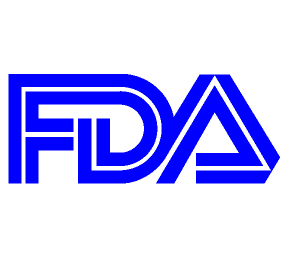 Statement from FDA Commissioner Margaret Hamburg, M.D. on Plan B One-Step
Statement from FDA Commissioner Margaret Hamburg, M.D. on Plan B One-Step
The U.S. Food and Drug Administration (FDA) has been carefully evaluating for over a decade whether emergency contraceptives containing levonorgestrel, such as Plan B One-Step, are safe and effective for nonprescription use to reduce the chance of pregnancy after unprotected sexual intercourse.
Plan B One-Step is a single-dose pill (1.5 mg levonorgestrel tablet) which is effective in decreasing the chance of pregnancy if taken within 3 days after unprotected sexual intercourse. The product contains higher levels of a hormone found in some types of daily use oral hormonal contraceptive pills and works in a similar way to birth control pills.
Plan B One-Step was originally approved in July 2009 for use without a prescription for females age 17 and older and as a prescription-only option for females younger than age 17. In February 2011, Teva Women’s Health Inc. submitted a supplemental application seeking to remove the prescription-only status for females younger than age 17 and to make Plan B One-Step nonprescription for all females of child-bearing potential.
The Center for Drug Evaluation and Research (CDER) completed its review of the Plan B One-Step application and laid out its scientific determination. CDER carefully considered whether younger females were able to understand how to use Plan B One-Step. Based on the information submitted to the agency, CDER determined that the product was safe and effective in adolescent females, that adolescent females understood the product was not for routine use, and that the product would not protect them against sexually transmitted diseases. Additionally, the data supported a finding that adolescent females could use Plan B One-Step properly without the intervention of a healthcare provider.
It is our responsibility at FDA to approve drugs that are safe and effective for their intended use based on the scientific evidence. The review process used by CDER to analyze the data applied a risk/benefit assessment consistent with its standard drug review process. Our decision-making reflects a body of scientific findings, input from external scientific advisory committees, and data contained in the application that included studies designed specifically to address the regulatory standards for nonprescription drugs. CDER experts, including obstetrician/gynecologists and pediatricians, reviewed the totality of the data and agreed that it met the regulatory standard for a nonprescription drug and that Plan B One-Step should be approved for all females of child-bearing potential.
I reviewed and thoughtfully considered the data, clinical information, and analysis provided by CDER, and I agree with the Center that there is adequate and reasonable, well-supported, and science-based evidence that Plan B One-Step is safe and effective and should be approved for nonprescription use for all females of child-bearing potential.
However, this morning I received a memorandum from the Secretary of Health and Human Services invoking her authority under the Federal Food, Drug, and Cosmetic Act to execute its provisions and stating that she does not agree with the Agency’s decision to allow the marketing of Plan B One-Step nonprescription for all females of child-bearing potential. Because of her disagreement with FDA’s determination, the Secretary has directed me to issue a complete response letter, which means that the supplement for nonprescription use in females under the age of 17 is not approved. Following Secretary Sebelius’s direction, FDA sent the complete response letter to Teva today. Plan B One-Step will remain on the market and will remain available for all ages, but a prescription will continue to be required for females under the age of 17.
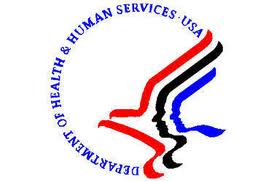 A Statement by U.S. Department of Health and Human Services Secretary Kathleen Sebelius
A Statement by U.S. Department of Health and Human Services Secretary Kathleen Sebelius
Plan B One-Step is an emergency contraceptive, sometimes referred to as the “morning after pill.” Plan B One-Step is currently labeled over the counter to women ages 17 years and older, but is sold behind the pharmacy counter. It is available by prescription only to women 16 years and younger. My decision does not change any current availability of the drug for all women.
In February 2011, Teva Women’s Health Inc. submitted to the FDA a supplemental new drug application for Plan B One-Step. This application sought to make Plan B One-Step available over the counter for all girls of reproductive age. The science has confirmed the drug to be safe and effective with appropriate use. However, the switch from prescription to over the counter for this product requires that we have enough evidence to show that those who use this medicine can understand the label and use the product appropriately. I do not believe that Teva’s application met that standard. The label comprehension and actual use studies did not contain data for all ages for which this product would be available for use.
FDA has recommended approval of this application in its Summary Review for Regulatory Action on Plan B One-Step. After careful consideration of the FDA Summary Review, I have concluded that the data, submitted by Teva, do not conclusively establish that Plan B One-Step should be made available over the counter for all girls of reproductive age.
The average age of the onset of menstruation for girls in the United States is 12.4 years. However, about ten percent of girls are physically capable of bearing children by 11.1 years of age. It is common knowledge that there are significant cognitive and behavioral differences between older adolescent girls and the youngest girls of reproductive age. If the application were approved, the product would be available, without prescription, for all girls of reproductive age.
The Secretary of the Department of Health and Human Services is responsible, acting through the FDA Commissioner, for executing the Federal Food, Drug, and Cosmetic Act. Today’s action reflects my conclusion that the data provided as part of the actual use study and the label comprehension study are not sufficient to support making Plan B One-Step available to all girls 16 and younger, without talking to a health care professional. Plan B One-Step will still be available over the counter to women ages 17 and older.
Because I do not believe enough data were presented to support the application to make Plan B One-Step available over the counter for all girls of reproductive age, I have directed FDA to issue a complete response letter denying the supplemental new drug application (SNDA) by Teva Women’s Health, Inc..
 Many women don’t have all the facts when unprotected sex occurs. Emergency contraceptive methods represent evolving and scientifically viable options for many women, yet are not adequately marketed to the public. Emergency Contraceptive Pills (EPCs) offer women a fast and private over-the-counter option to use after unprotected sex. With the multitude of contraceptive agents on the market, EPCs would seemingly be added to the marketing of family planning initiatives. Yet, surprisingly, EPCs are not marketed effectively, and many women who may wish to consider EPCs as a last-resort option do not have sufficient access to this information.
Many women don’t have all the facts when unprotected sex occurs. Emergency contraceptive methods represent evolving and scientifically viable options for many women, yet are not adequately marketed to the public. Emergency Contraceptive Pills (EPCs) offer women a fast and private over-the-counter option to use after unprotected sex. With the multitude of contraceptive agents on the market, EPCs would seemingly be added to the marketing of family planning initiatives. Yet, surprisingly, EPCs are not marketed effectively, and many women who may wish to consider EPCs as a last-resort option do not have sufficient access to this information.
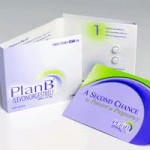 Recently, emergency contraceptives have been at the center of the debate as to whether employers must cover contraception under their health insurance plans. Under the Affordable Care Act, which covers preventive care, non-exempt employers must cover the morning-after pill (
Recently, emergency contraceptives have been at the center of the debate as to whether employers must cover contraception under their health insurance plans. Under the Affordable Care Act, which covers preventive care, non-exempt employers must cover the morning-after pill (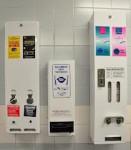 FDA regulators announced they will not take action regarding a vending machine that dispenses emergency contraception on Shippensburg University's campus in Pennsylvania,
FDA regulators announced they will not take action regarding a vending machine that dispenses emergency contraception on Shippensburg University's campus in Pennsylvania, 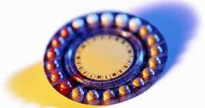 Several health experts are proposing to make the birth control pill available in the U.S. without a prescription (as they are in many parts of the world). The American College of Obstetricians and Gynecologists (ACOG) released a statement calling for oral contraceptives to be sold over-the-counter, no longer requiring a doctor’s prescription.
Several health experts are proposing to make the birth control pill available in the U.S. without a prescription (as they are in many parts of the world). The American College of Obstetricians and Gynecologists (ACOG) released a statement calling for oral contraceptives to be sold over-the-counter, no longer requiring a doctor’s prescription. Statement from FDA Commissioner Margaret Hamburg, M.D. on Plan B One-Step
Statement from FDA Commissioner Margaret Hamburg, M.D. on Plan B One-Step A Statement by U.S. Department of Health and Human Services Secretary Kathleen Sebelius
A Statement by U.S. Department of Health and Human Services Secretary Kathleen Sebelius